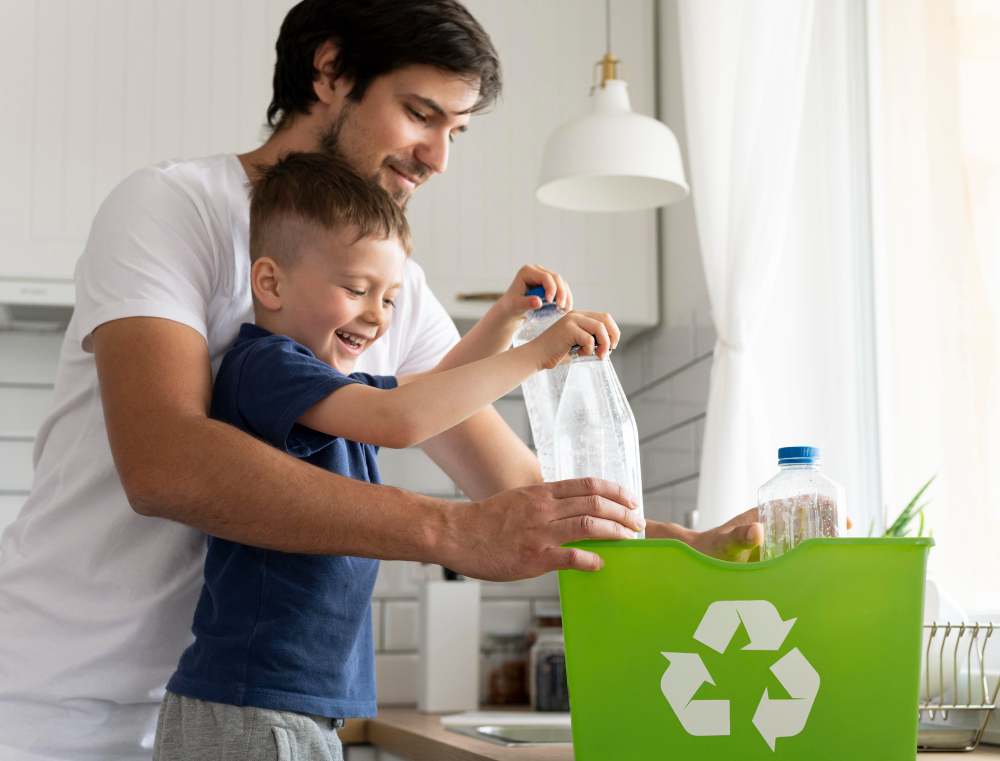
Learn the best ways to do zero waste practice in Malaysia! Discover practical tips on reducing, reusing, and recycling to achieve a sustainable lifestyle.
Introduction: Why Zero Waste Matters in Malaysia
Malaysia generates over 38,000 tons of waste daily, much of which ends up in landfills and oceans. The country’s waste management system struggles to handle this increasing waste, leading to pollution, climate change, and environmental destruction.
Practicing zero waste is one of the most effective ways Malaysians can help protect the environment while also saving money and resources. But how can you successfully adopt a zero-waste lifestyle in Malaysia?
This guide will provide practical, easy-to-follow steps to help Malaysians reduce waste and live sustainably. Whether you’re new to zero waste or looking to improve your efforts, these strategies will make a big difference.
1. Reduce: The First Step to Zero Waste
The best way to manage waste is to prevent it from being created in the first place. Reducing waste at the source means making conscious choices about what you buy and use.
How Malaysians Can Reduce Waste:
Avoid single-use plastics – Say no to plastic bags, straws, and disposable containers.
Buy in bulk – Bring your own containers and shop at zero-waste stores.
Choose products with minimal packaging – Support brands that use biodegradable or recyclable materials.
Refuse unnecessary freebies – Many businesses offer plastic giveaways; kindly decline them.
Opt for digital receipts & bills – Reduce paper waste by choosing electronic alternatives.
By making small changes in purchasing habits, Malaysians can significantly cut down waste and protect natural resources.
2. Reuse: Give Items a Second Life
Instead of throwing things away, find ways to reuse and repurpose them. This reduces the demand for new products and extends the life of existing materials.
How to Incorporate Reuse in Daily Life:
Use reusable shopping bags – Always carry a fabric bag instead of using plastic bags.
Refill and reuse bottles – Invest in a reusable water bottle instead of buying bottled drinks.
Repurpose glass jars – Use them for storage, food preservation, or DIY crafts.
Donate instead of discarding – Give away clothes, furniture, and electronics to charity organizations.
Rent or borrow items – Need a tool or party decoration? Borrow instead of buying new.
By reusing as much as possible, Malaysians can reduce waste, save money, and promote sustainability.
3. Recycle: Proper Waste Management in Malaysia
Recycling helps keep materials out of landfills and into new production cycles. However, improper recycling can contaminate waste and make it harder to process.
How Malaysians Can Recycle Correctly:
Separate recyclables – Keep plastics, metals, paper, and glass in different bins.
Check local recycling centers – Many areas have designated drop-off points for recyclables.
Recycle electronic waste (e-waste) – Take old gadgets to proper disposal centers.
Clean recyclables before discarding – Rinse food containers to prevent contamination.
Support brands that use recycled materials – Buy products made from recycled plastics or paper.
Malaysia has a growing recycling industry, but it requires active participation from individuals to make it successful.
4. Composting: The Best Way to Reduce Food Waste
Food waste is a major issue in Malaysia, contributing to nearly 50% of total household waste. Instead of throwing food scraps away, composting can turn organic waste into valuable fertilizer.
How to Start Composting in Malaysia:
Use a compost bin – Even in small apartments, a compost bin helps manage food waste.
Compost fruit & vegetable scraps – Avoid adding meat, dairy, and oily foods to prevent bad odors.
Join community composting programs – Some Malaysian eco-groups offer composting services.
Use compost in home gardens – It enriches soil and promotes healthier plant growth.
By composting, Malaysians can reduce landfill waste and create natural fertilizer, helping to nourish local ecosystems.
5. Supporting Zero-Waste Businesses in Malaysia
Malaysia has many businesses and brands committed to zero-waste practices. Supporting these companies helps promote a greener economy and encourages other businesses to follow.
Where to Find Zero-Waste Products in Malaysia:
Zero-waste grocery stores – Shops like The Hive Bulk Foods, A Bit Less, and Nude Zero Waste Store offer package-free shopping.
Sustainable fashion brands – Many local brands use recycled materials and eco-friendly fabrics.
Eco-friendly cafes & restaurants – Some cafes offer discounts for bringing reusable cups.
Online zero-waste platforms – Websites like Zero Waste Malaysia provide resources and directories of green businesses.
Supporting these businesses encourages more sustainable practices in Malaysia and helps reduce environmental impact.
Conclusion: Every Action Counts
Living a zero-waste lifestyle in Malaysia is possible with small, mindful changes. Malaysians can significantly lower their waste footprint by reducing consumption, reusing materials, recycling responsibly, composting food waste, and supporting sustainable businesses.
Zero waste isn’t about being perfect—it’s about making better choices every day. Whether you bring your own bag, refuse plastic straws, or compost food scraps, every action helps create a cleaner, healthier Malaysia.
Let’s work together to make zero waste a reality in Malaysia!
Frequently Asked Questions (FAQs)
1. Is it difficult to live a zero-waste lifestyle in Malaysia?
No! Start small by carrying reusable items and reducing unnecessary purchases. Over time, these habits become second nature.
2. What are some zero-waste stores in Malaysia?
Great options include The Hive Bulk Foods, Nude Zero Waste Store, and A Bit Less, which sell package-free and eco-friendly products.
3. How can I recycle properly in Malaysia?
Separate your waste into plastic, metal, paper, and glass. Check with local recycling centers for proper disposal methods.
4. What can I do with food waste if I live in an apartment?
Use a small compost bin or join community composting programs that collect food scraps.
5. How can I encourage my family and friends to go zero waste?
Lead by example! Share tips, introduce them to zero-waste stores, and show how easy and rewarding it is to live sustainably.
By taking small steps, Malaysians can work together towards a cleaner, waste-free future. Start your zero-waste journey today!
Want to learn more? Read: https://www.ajinomoto.com.my/asv/commitment-to-global-sustainable-development/zero-waste-in-malaysia
Also Read: https://www.ajinomoto.com.my/asv/commitment-to-global-sustainable-development/zero-waste-in-malaysia